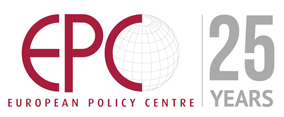(25 March 2024 – EPC)
SPEAKERS:
- Simona Constantin, Deputy Head of Cabinet of Vice-President Věra Jourová, European Commission;
- Jakub Jaraczewski, Research Coordinator, Democracy Reporting International;
- Sławomir Sierakowski, Mercator Senior Fellow and Founder of Krytyka Polityczna;
- Maria Skóra, Research Associate, Institut für Europäische Politik
MODERATOR:
- Eric Maurice, Policy Analyst, European Policy Centre
The aim of the conference organized by the European Policy Center (EPC) was to provide a comprehensive analysis of the current political landscape in Poland, particularly focusing on the challenges and progress in restoring the rule of law.
I. Challenges and progress in restoring the Rule of Law
Jakub Jaraczewski, Research Coordinator at Democracy Reporting International, highlighted several crucial aspects of the political situation in Poland. Under the previous government of the Law and Justice (PiS) party, both the European Union and the Council of Europe reported systematic violations of the rule of law. The incoming government led by Donald Tusk’s Civic Coalition was seen as a return of Poland to Europe. This new government embarked on reforms to restore the independence of the judicial system and unlocked significant EU funding tied to the rule of law. However, despite these advancements, the current government faces several major challenges.
Among these challenges, the legislative veto power of current President Andrzej Duda and the influence of the former majority on the Constitutional Tribunal are at the forefront. Additionally, the lack of a parliamentary majority to amend the Constitution makes the implementation of deep institutional reforms hard to achieve. Jakub Jaraczewski emphasized three key challenges for the Polish government: the need to ensure the independence of the Constitutional Court and the National Council of the Judiciary, as well as deciding what to do with recently appointed judges. He also stressed the importance of reforming the prosecutor’s office to shield it from political influence.
Sławomir Sierakowski highlighted the complexity of the Polish political landscape, noting that despite the government’s commitment to restoring the rule of law, challenges persist. Approximately 12% of the Polish electorate, formerly in favor of the PiS party, has ceased voting for this party. This situation, combined with persistent populist rhetoric and obstruction tactics, presents significant challenges for the government.
II. Public media issues and electoral mobilization during the elections
Maria Skóra, Research Associate at the Institute for European Politics, addressed the challenges related to public media in Poland. Under the previous government of the PiS party, public media were used as tools for political propaganda. The new government took steps to change this situation, but criticisms persist regarding the brutality of these actions. The mobilization of PiS party supporters around public media has had significant political and social repercussions. However, the current government must navigate coexistence with President Andrzej Duda, manage opposition, and address internal divisions.
Elections were a pivotal moment in Poland, allowing significant voter mobilization, particularly among women and youth. Furthermore, peaceful power transition has been essential for maintaining political stability. Rebuilding a political culture of mutual respect and civility is crucial to restoring trust in society and the political process, as explained by Maria Skóra. Additionally, the crucial role of civil society and independent media in defending the rule of law cannot be underestimated.
III. Poland and the EU
Simona Constantin, Deputy Head of Cabinet to Vice-President Věra Jourová at the European Commission, provided insight into the decision to unlock €137 billion in EU funding for Poland. This decision was influenced by specific actions taken by the Polish government, notably achieving key judicial milestones outlined in the recovery and resilience plan. Moreover, she praised Poland’s action plan to address concerns related to Article 7, emphasizing the importance of ongoing and transparent implementation of these measures. Constantin reiterated the Commission’s commitment to maintaining close collaboration with Polish authorities and expressed readiness to support them in implementing necessary changes to mitigate systemic risks to the rule of law in Poland.
Link to the event:
https://www.epc.eu/en/events/Undoing-the-illiberal-state-in-Poland~58e9b8

